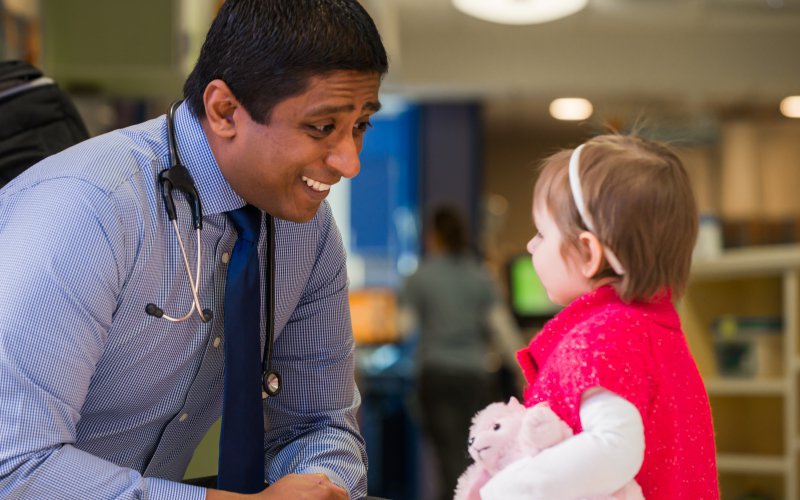
By: Trish Adkins
When a child is diagnosed with cancer, talking to their siblings and young friends can seem very intimidating. However, educating other children about the diagnosis can help foster a supportive and encouraging environment for the diagnosed child, while also helping friends and siblings who may also be confused and scared.
It is essential for children to receive honest, age-appropriate information. Children who are not given the facts will often invent worst-case scenarios. Talking about cancer in a way they understand can decrease the likelihood of misunderstandings.
Here are some tips by age group, as well as some recommended resources for parents, teachers and other caregivers:
Ages 2-5
- Children may have a basic understanding of illness and taking medicine to feel better.
- They may associate cancer with more familiar illnesses, like a cold or flu.
- Emphasize that no one can catch or cause cancer.
- Keep explanations about a child's diagnosis simple.
Ages 6-10
- Children may have heard of cancer before, but do not understand other details.
- They might think cancer is contagious and not understand the physical changes associated with treatment.
- Generally, they are ready for basic information about a cancer diagnosis and treatment.
- Introduce vocabulary they may already have heard such as cancer, tumor, chemotherapy, radiation, surgery, etc.
- Begin conversations with leading questions.
- “Have you heard about cancer before?”
- “Do you know what cancer is?”
- “What do you know about cancer?”
Ages 11-18
- Children understand complex cause and effect relationships, such as illness and side effects.
- They may already know someone in their family with cancer. Children may make generalizations based on previous experiences and knowledge.
- Start with the basics of the diagnosis. Some children may want a lot of information; others may want to avoid talking about it. Emphasize that diagnoses and treatment are unique and outcomes will vary.
- They are likely to deny feelings of fear or worry. If they want information, they are likely to search on the internet, confide in their friends or use social media.
Additional Resources:
The Alex's Lemonade Stand Foundation (ALSF) School Guide
To help educators and other school staff navigate childhood cancer, ALSF created The ALSF School Guide: Supporting Families and Classmates Affected by Childhood Cancer. The ALSF School Guide is available for free download to all teachers and related staff.
Childhood Cancer Guides
The Childhood Cancer Guides are reviewed by renowned experts in pediatric oncology, feature stories from more than 500 parents, children with cancer, and survivors of childhood cancer. Each book in the series includes clear explanations of the various types of childhood cancer, descriptions of state-of-the-art treatments, emotional support for every member of the family and access to helpful resources
SuperSibs
Childhood cancer affects the whole family, not only the child who receives the diagnosis. SuperSibs is dedicated to comforting, encouraging, and empowering siblings during their family’s battle against childhood cancer so they can face the future with courage and hope. Learn more about the SuperSibs program and access valuable resources here.
For Further Reading:
Handling a Childhood Cancer Diagnosis in the Classroom
7 Tips for Talking to Kids About Cancer
4 Things You Can Do To Hold Your Child Steady Through a Cancer Diagnosis

